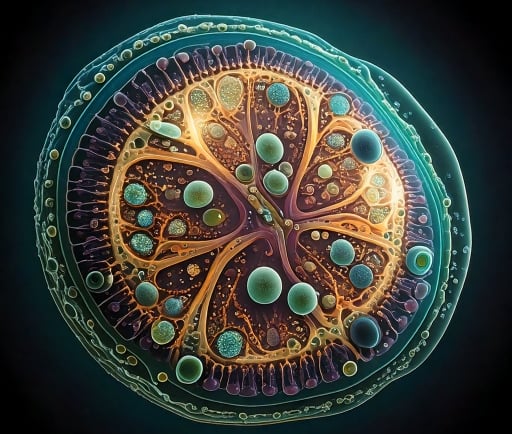Cytokinesis: The Final Phase of Cell Division


What is Cytokinesis?
Cytokinesis is a critical biological process that serves as the final physical division of a cell, concluding the intricate stages of cell division. Following telophase, which is the last phase of mitosis, cytokinesis effectively separates the cytoplasm of a parental cell into two daughter cells. This process is sometimes regarded as a sixth phase of mitosis due to its importance and its timing immediately following telophase.
The Process of Cytokinesis
During cytokinesis, the cell undergoes various complex mechanisms to ensure that it divides properly, distributing organelles and cytoplasmic material evenly between the two new cells. In animal cells, this is accomplished through a structure known as the contractile ring, formed by actin and myosin filaments. These filaments contract to pinch the cell membrane, thus creating a cleavage furrow that deepens until the cell is divided into two separate entities.
Conversely, in plant cells, cytokinesis involves the formation of a cell plate due to the presence of a rigid cell wall. Vesicles carrying cell wall materials collect at the center of the cell and fuse to form a new structure, the cell plate, which eventually develops into the mature cell wall separating the two daughter cells.
Significance of Cytokinesis in the Cell Cycle
The significance of cytokinesis cannot be overstated; it is essential for proper growth, development, and tissue repair in multicellular organisms. Without cytokinesis, cells would not be able to divide, leading to problems such as polyploidy, where cells contain more than two paired (homologous) sets of chromosomes. This situation can result in various developmental issues and diseases, including cancer.
Cytokinesis, while sometimes overshadowed by the preceding phases of mitosis, plays a vital role in ensuring that each daughter cell receives the appropriate genetic material and cellular components necessary for survival and function. Understanding this final stage of cell division improves our knowledge of cellular processes and provides insights into the mechanisms underlying various health conditions.
